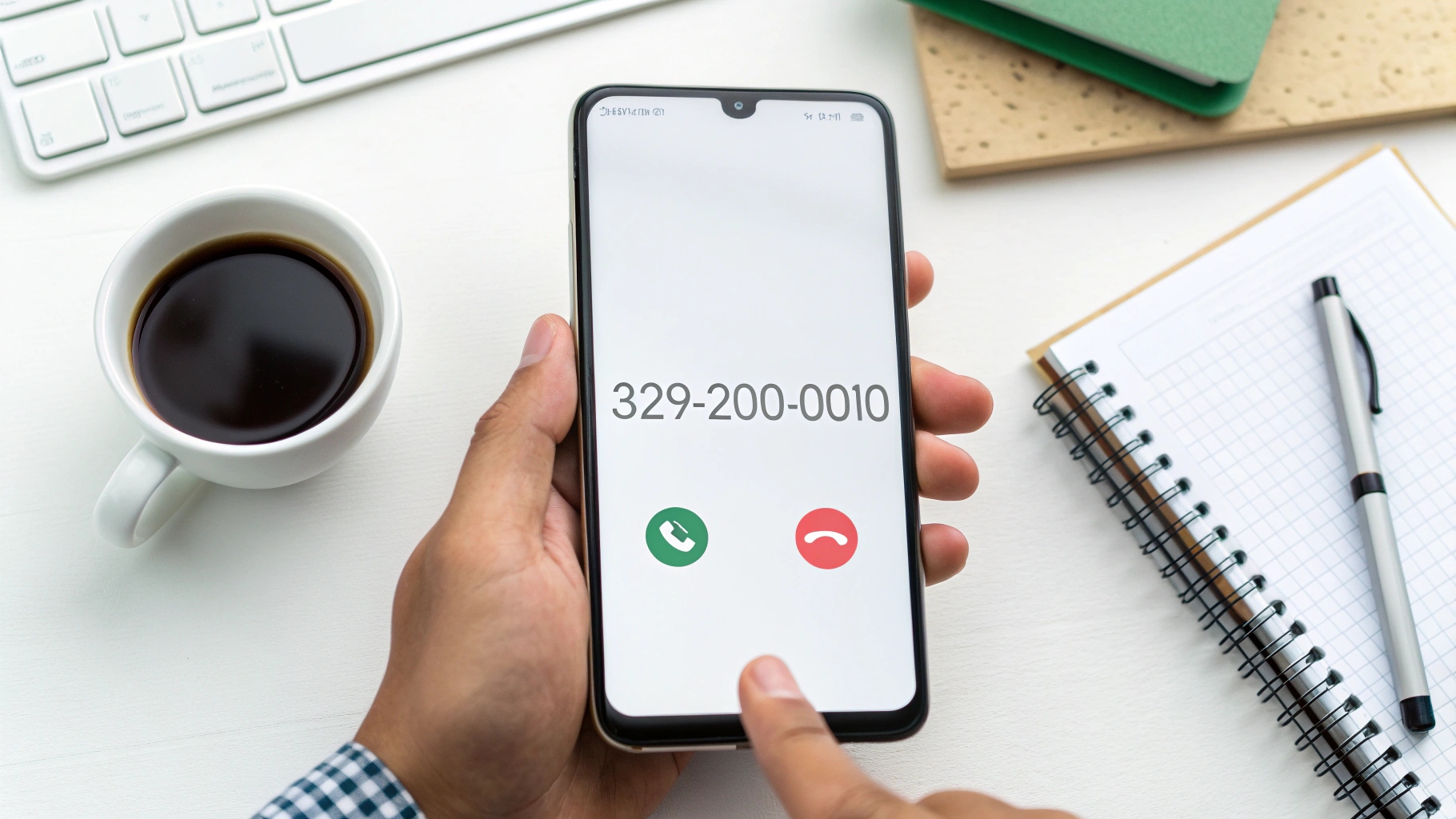Receiving an unexpected call from an unfamiliar number can be unsettling, especially when it comes from a number like 329-200-0010.
If you’re in Pakistan, this number might be part of a growing wave of scam calls targeting mobile users. These calls often employ tactics designed to deceive and exploit unsuspecting individuals.
In this article, we’ll delve into the nature of such scam calls, how to identify them, and the steps you can take to protect yourself.
What Is the 329-200-0010 Call?
The 329-200-0010 call is widely reported as a suspicious or scam-related number, often targeting individuals in Pakistan. Callers using this number may impersonate officials from banks, telecom companies, or government agencies to trick people into revealing sensitive information. In many cases, the calls are automated or involve fake prize or lottery claims. This number may also be used in caller ID spoofing, where scammers disguise their real number to appear more trustworthy. Though its exact origin remains unclear, the call’s behavior matches known scam patterns. It’s strongly advised not to engage with or return calls from this number.
Common Scam Tactics Associated with Such Calls
Scammers employ various strategies to deceive individuals into divulging personal information or making financial transactions. Some of the common tactics include:
Impersonation of Trusted Entities:
Impersonation of trusted entities is a common scam tactic where callers pretend to be from banks, government agencies, or well-known companies. They use this false identity to gain your trust and trick you into sharing sensitive information. Always verify the caller’s identity before taking any action.
Urgent Requests for Personal Information:
Scammers often create a sense of urgency to pressure you into quickly sharing personal information. They may claim there’s an emergency or a limited-time offer to make you act without thinking. Always take your time and never give out sensitive details under pressure.
Phishing Links:
Phishing links are fake websites or URLs sent by scammers to steal your personal information. They often look like legitimate sites but are designed to capture your passwords or financial details. Never click on suspicious links received during unexpected calls or messages.
Malware Installation:
Scammers may try to convince you to download software or apps that contain malware. This malicious software can steal your data or damage your device. Always avoid downloading anything from unknown sources or unsolicited calls.
How to Identify a Scam Call?
Identifying a scam call requires being attentive to certain warning signs. Scam callers often create a sense of urgency, pressuring you to act immediately or face negative consequences. They may ask for sensitive information like your bank details, passwords, or personal identification numbers, which legitimate organizations rarely request over the phone. If the caller refuses to provide clear identification or becomes evasive when questioned, it’s a major red flag. Additionally, poor call quality, background noise, or an unusual accent can indicate a scam. Be cautious of unsolicited calls from unknown numbers, especially if they ask you to click links or download apps. Trust your instincts—if something feels suspicious, it’s best to hang up.
Steps to Protect Yourself
To protect yourself from scam calls like those from 329-200-0010, start by not answering calls from unknown or suspicious numbers. If you do pick up, never share personal or financial information over the phone. Use your phone’s built-in call blocking features or download trusted apps to block unwanted calls. Avoid clicking on links or downloading attachments sent during these calls. Report suspicious numbers to your telecom provider and relevant authorities, such as the Pakistan Telecommunication Authority (PTA). Always verify any claims made by callers by contacting the organization directly using official contact details. Stay informed about common scam tactics to recognize them quickly. Being cautious and proactive is your best defense against phone scams.
Frequently Asked Questions (FAQs)
1. Is 329-200-0010 a scam number?
Yes, many users have reported it as a scam number associated with fraudulent or suspicious calls. It’s best to avoid answering or returning the call.
2. What should I do if I receive a call from this number?
Do not answer or share any personal information. Block the number and report it to your telecom provider or PTA.
3. Can someone hack my phone just by calling me?
No, a call alone can’t hack your phone. However, engaging with scammers or downloading apps they suggest can compromise your device.
4. Why do scammers use international-looking numbers?
They use such numbers to mask their real identity and appear more legitimate or untraceable.
5. Should I call back if I missed a call from 329-200-0010?
No, calling back can confirm your number is active and make you a target for more scams.
6. Can I report this number?
Yes, you can report it to your mobile service provider and to the Pakistan Telecommunication Authority (PTA).
7. Are there apps to block scam calls?
Yes, apps like Truecaller, Hiya, and others can identify and block known scam numbers.
8. What if I gave personal information to the caller?
Immediately contact your bank or relevant institution to secure your accounts and change your passwords.
9. How can I verify if a call is real or fake?
Hang up and call the official number of the organization the caller claims to represent to confirm.
10. Can scammers clone my number or identity through a call?
They can’t clone your number from a call, but if they gather enough info, they may attempt identity fraud.
Conclusion
In conclusion, calls from numbers like 329-200-0010 are often associated with scams or fraudulent activities, especially when they come unexpectedly and attempt to extract personal information. It’s crucial to stay alert and avoid engaging with unknown callers.
If a call feels suspicious, trust your instincts and do not share any sensitive details. Use call-blocking tools, report suspicious numbers to the appropriate authorities, and inform others to help raise awareness.
Staying informed about common scam tactics can significantly reduce your risk. Your vigilance is your first line of defense against phone fraud.
